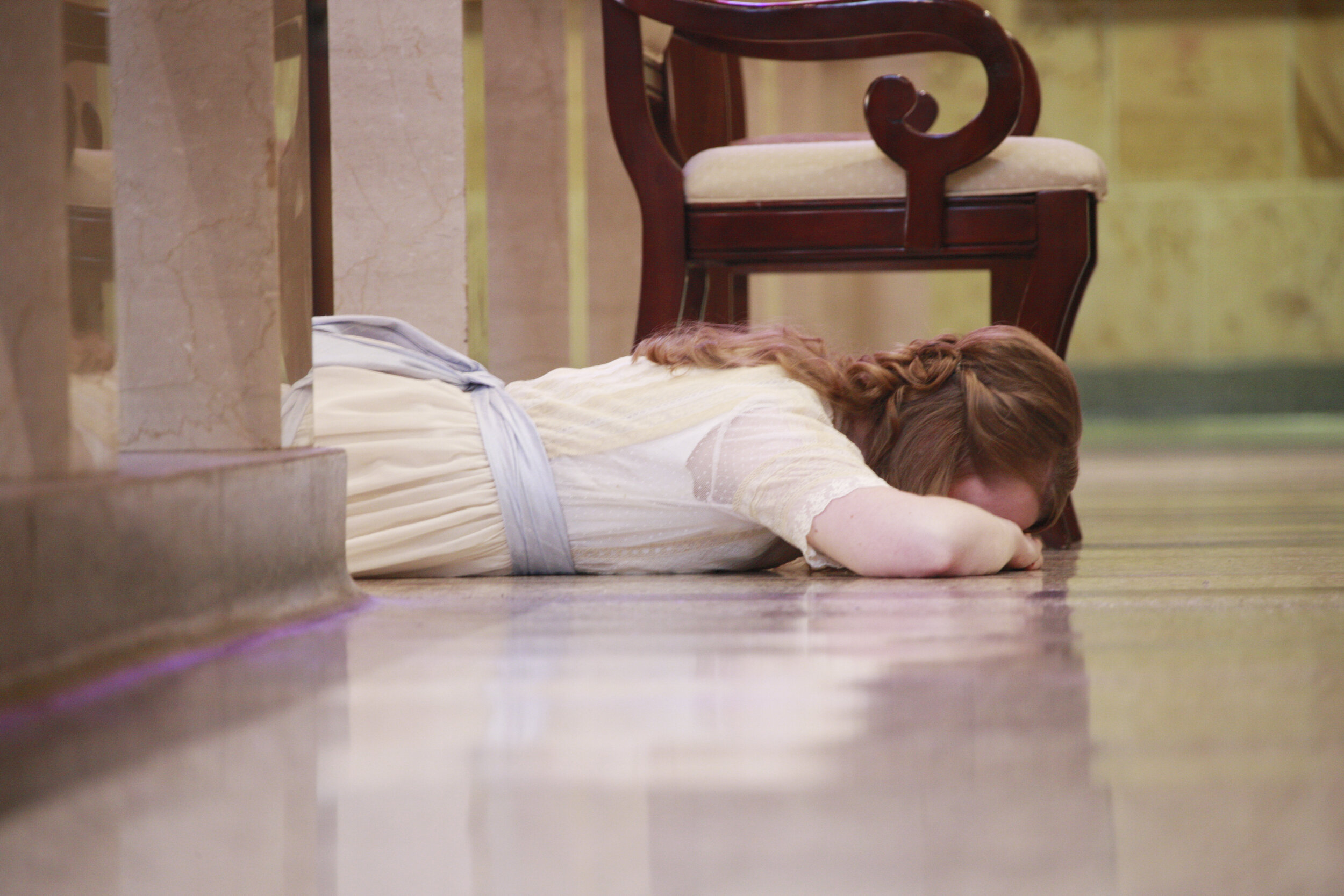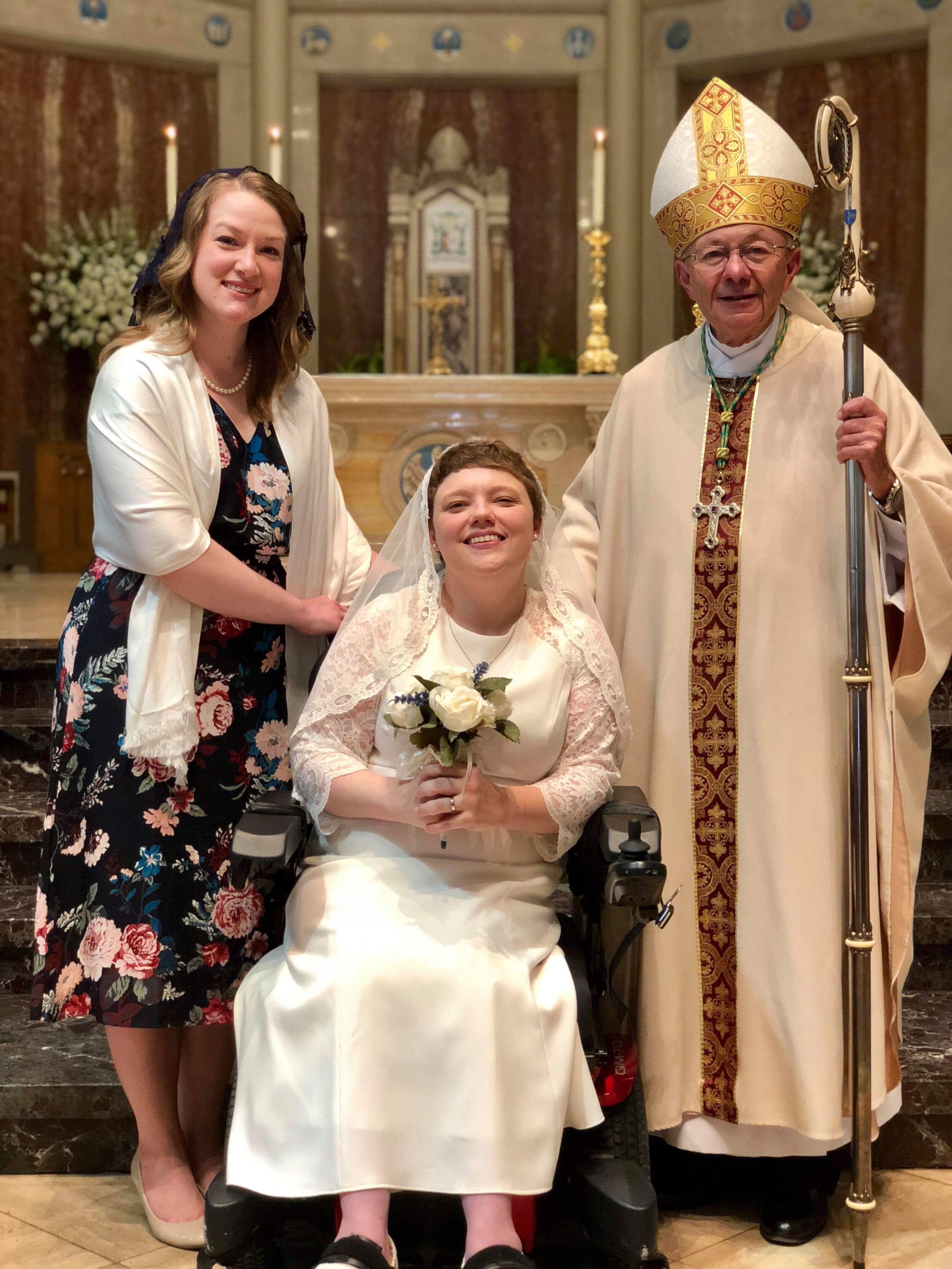
Consecrated Virginity
"The order of virgins is also to be added to these forms of consecrated life. Through their pledge to follow Christ more closely, virgins are consecrated to God, mystically espoused to Christ and dedicated to the service of the Church, when the diocesan Bishop consecrates them according to the approved liturgical rite."
— Code of Canon Law 604 §1
What is a Consecrated Virgin?
A consecrated virgin living in the world is a Catholic woman who has made a permanent commitment to remain a virgin, has never married, has offered the gift of her virginity to Jesus Christ in response to His invitation, and has been publicly consecrated by her bishop, according to the Rite in the Roman Pontifical. A consecrated virgin lives in the world— not in a convent— and supports herself financially. She prays for her bishop and for the Church and serves the Church according to her gifts and availability.
Since the time of the Apostles, certain women sensed a call to dedicate their virginity to God. Prior to the formation of religious orders for women, the first consecrated virgins led lives of prayer and service while residing with their families. Due to the widespread persecution of Christians at that time, many of these holy women were martyred. By the fourth century, after the legalization of Christianity, the Church had developed a liturgical rite of consecration which was celebrated publicly by the bishop and witnessed by the local Church.
By the tenth century, due to the growth of organized religious communities for women, the public rite of consecration fell out of use for virgins living “in the world.” However, its use continued within certain religious orders, which prevented the Rite from being lost. It was not until after the Second Vatican Council, in 1970, that the Rite of Consecration to a Life of Virginity was revived for virgins living in the world.
Consecrated virgins Emily Byers and Alicia Pousson pictured with Bishop Deshotel at Pousson’s consecration
What is the Difference between a Sister and a Consecrated Virgin?
Consecrated virgins don’t profess vows of poverty and obedience
Consecrated virgins don’t live in a convent or community
Both are brides of Christ who forsake marriage out of love for Jesus and a desire to serve Him
Emily Byers, consecrated virgin in the Diocese of Lafayette, writes a blog and offers more resources about consecrated virgins.
For more information about the vocation of consecrated virginity in the Diocese of Lafayette, contact the Office of Vocations.



